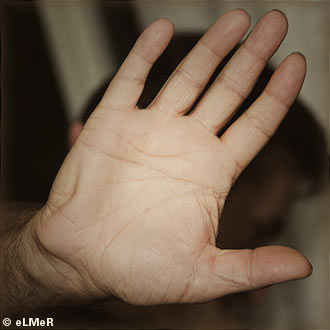I discovered that Masada is the name of an historical site on the edge of the Judean desert overlooking the Dead Sea, a site that became famous for its significance in the First Jewish-Roman War (Great Jewish Revolt). Since that discovery, I have learned that John Zorn is one of a number of innovative and historically aware musicians who are creating new expressions of Jewish identity from the fusion of klezmer, jazz, rock and classical. Zorn says “The idea with Masada is to produce a sort of radical Jewish music, a new Jewish music which is not the traditional one in a different arrangement but music for the Jews of today.”
For jazz fans, John Zorn’s Masada “songbook” is probably his most approachable work and it is his acoustic Masada band that first earned him recognition among jazz critics as a serious player, composer and bandleader. In addition to the music itself, the familiar quartet format and the extraordinary players — Dave Douglas (trumpet), Joey Baron (drums), Greg Cohen (bass) and John Zorn (saxophone) — make this acoustic group accessible to the modern jazz ear. They recorded ten studio albums together over four years in the mid to late nineties and a series of live albums in the same period. This is the quartet that played The Danforth Music Hall during Toronto’s Jazz Festival.
Given the enormity and variety of John Zorn’s output, it was not surprising that some of the music-lovers in the lineup on this heavy, storm-pregnant Wednesday night came out of curiosity, having heard about Zorn but unsure of what to expect. Others were avid John Zorn followers who knew all or most of his work. The message passed down the line that the plane was late but the band was in the building. The show was supposed to start at 7:00 but the doors did not open until 7:30.
In the theatre, sporadic clapping erupted as people grew impatient or spotted John Zorn hoisting himself onto the stage or walking across the back of it. In the balcony, the air conditioning was inadequate and by 8:15 I was sweating and getting cranky. No announcement, nothing. Total disregard for the audience. Surely someone (maybe the organizer?) could have said something about the delay. In any case, when the Acoustic Masada Quartet arrived on stage at 8:30 and immediately started to play I was feeling cranky and ready to dislike them — but I couldn’t.
John Zorn’s Acoustic Masada opened with an intense, high-velocity piece featuring frequent fits and starts, high register saxophone squeaks, rising trumpet lines, throaty bursts, exceptional bass technique and precise drumming sometimes directed with a sharp hand movement from John Zorn. I didn’t recognize any Jewish scales here and not much melody. There was some Ornette Coleman, a surprising hint of “Bemsha Swing” and lots of free improvisation. Sounded like the band was letting loose their frustrations, perhaps drawing out my own in the process. It was high energy stuff — and, I had to admit, interesting and exciting.



